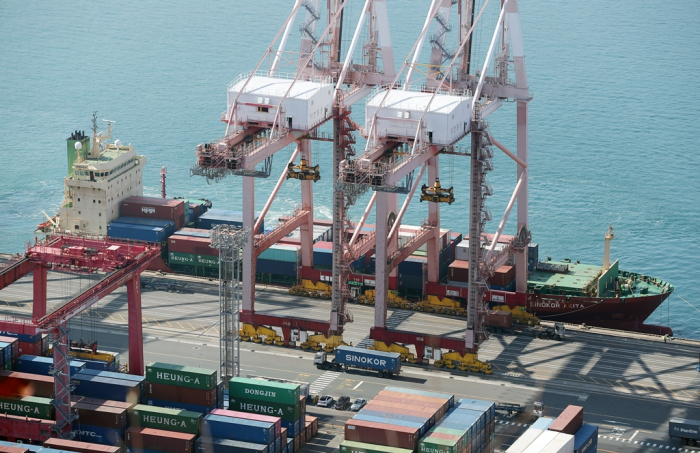Economy
KDI cuts Korea growth forecast, urges gradual rate hikes
The state-run think tank sees lower economic growth and inflation next year, saying BOK does not need to aggressively raise rates
By Nov 11, 2022 (Gmt+09:00)
2
Min read
Most Read
LG Chem to sell water filter business to Glenwood PE for $692 million


Kyobo Life poised to buy Japan’s SBI Group-owned savings bank


KT&G eyes overseas M&A after rejecting activist fund's offer


StockX in merger talks with Naver’s online reseller Kream


Mirae Asset to be named Korea Post’s core real estate fund operator



The Korea Development Institute (KDI) on Thursday said it lowered its growth forecast for 2023 to 1.8% from the previous 2.3%, which would be the weakest growth since 2020 when Asia’s fourth-largest economy contracted 0.7% as the pandemic dampened global markets. The economy was forecast to expand 2.7% this year, slowing from 4.1% in 2021.
The KDI became the first state-run institute to forecast the domestic economy to grow less than 2% next year. The economy has logged annual growth below that level only four times before. The country expanded 0.8% in 2009 due to the global financial crisis while contracting 5.1% in 1998 during the Asian financial crisis and 1.6% in 1980 in the aftermath of the previous year’s oil crisis.
Consumer prices are likely to rise 3.2% in 2023, far lower than the predicted 5.1% this year, the highest since 1998, the KDI said.
“The economy is expected to slow and inflation is likely to decline, so it is less necessary to steeply raise interest rates, although we still need a rate hike policy,” said Jung Kyu-chul, a fellow at the KDI.
BOTH EXPORTS, CONSUMPTION TO SLOW
The Bank of Korea had been expected to increase its policy interest rate by 50 basis points again this month after ramping it up to a decade high of 3.00% as the Fed delivered a fourth straight 75-bp hike to raise its federal funds rate to 3.75-4.00%, the highest level since January 2008.
But US inflation in October was lower than expected, fanning expectations that the Fed may ease its tightening moves, which could cause the South Korean central bank to refrain from such a big step 50-bp raise, given grim economic forecasts, analysts said.
The KDI expected growth in both exports and consumption to decline in 2023.
Total exports are likely to rise 1.6% next year, far lower than a 4.3% forecast for this year and 10.5% in 2021. Growth in total consumption was predicted to fall to 3.1% from a predicted 4.4% this year.
“The economic growth may significantly slow in the first half of next year as the impact of interest rate hikes at home and abroad gradually spreads,” said Chon Sora, associate fellow at the KDI office of macroeconomic analysis and forecasting.
The KDI expected the economy to grow 1.4% in the first half and 2.1% in the second.
Write to Eui-Jin Jeong and Jin-gyu Kang at justin@hankyung.com
Jongwoo Cheon edited this article.
More to Read
-
 Central bankBOK may raise rates by 50 bps again on Fed, inflation
Central bankBOK may raise rates by 50 bps again on Fed, inflationNov 03, 2022 (Gmt+09:00)
2 Min read -
 EconomyKorea’s 1st export decline in 2 years dims BOK’s big-step rate hike outlook
EconomyKorea’s 1st export decline in 2 years dims BOK’s big-step rate hike outlookNov 01, 2022 (Gmt+09:00)
3 Min read -
 Central bankBOK takes another big step hike as weak won lifts prices
Central bankBOK takes another big step hike as weak won lifts pricesOct 12, 2022 (Gmt+09:00)
3 Min read
Comment 0
LOG IN


